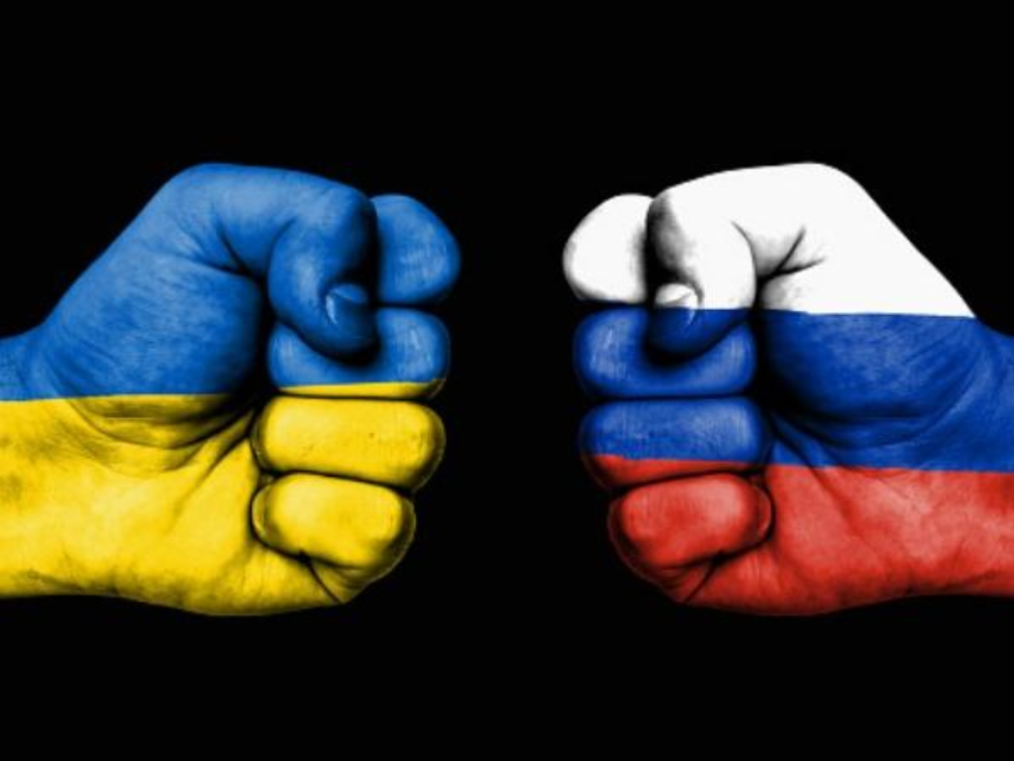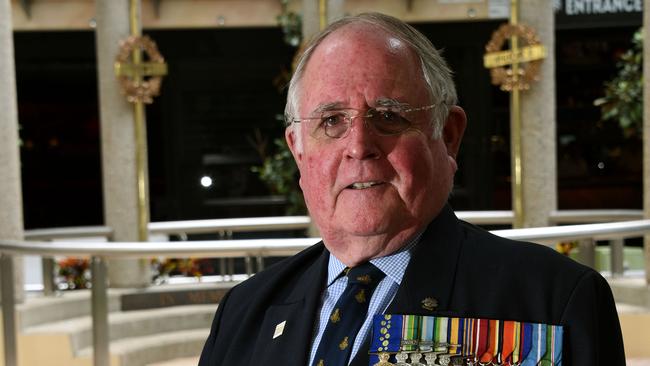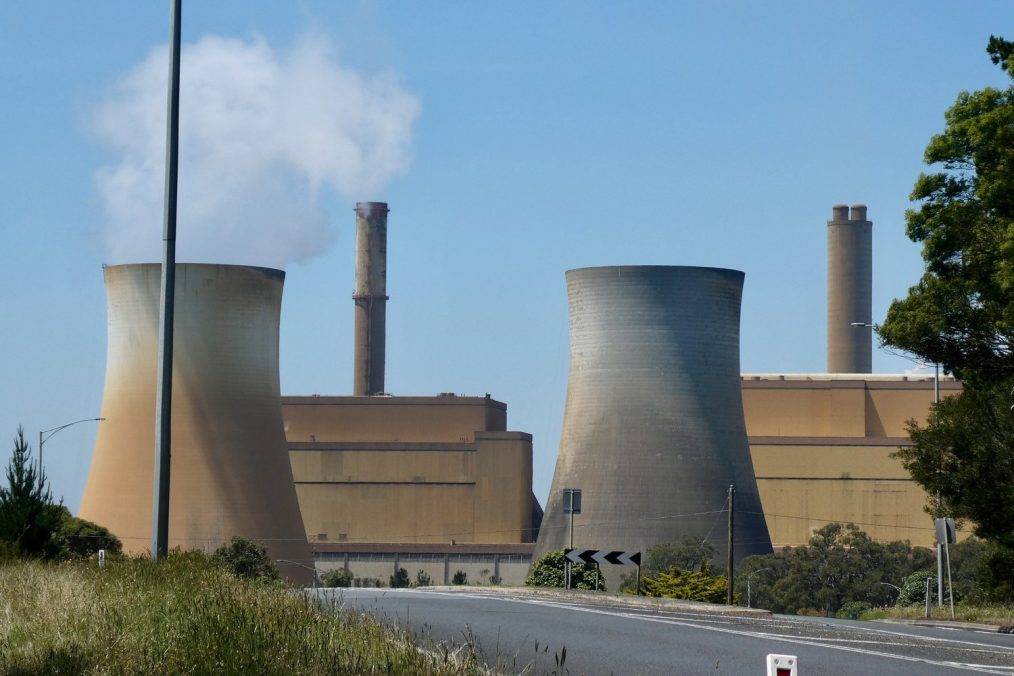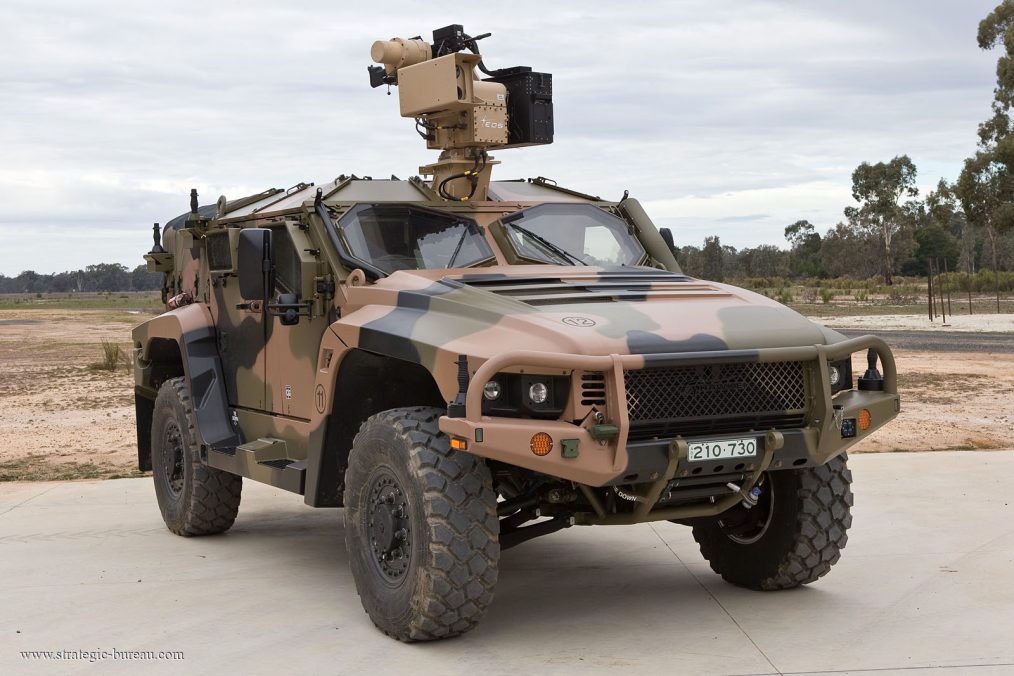ED: Thanks to Bob Buick for today’s smile
eWise Blog – Contributor
The media is focusing on radical agitators being expelled from campuses. While this is a necessary step, the real issue runs far deeper than a handful of individuals.
The true danger lies in the indoctrination occurring in Australia’s universities, shaping the minds of future leaders, policymakers, and influencers.
What exactly is being taught in these institutions?
First, under the banner of “social justice,” students are indoctrinated with an oppressor/oppressed ideology—a Marxist framework that portrays Western civilization as the enemy.
Second, once primed to resent Australia, Israel, and the West, students are exposed to radical ideologies that glorify violent “resistance” rather than peaceful discourse. This is happening openly in universities across the country.
Some university faculty members push the narrative that the “Australian settler state” must be dismantled. They promote the idea that “resistance” justifies violence, particularly against Israel, which they claim is an extension of “Western colonialism.” While they may try to limit this rhetoric to Israel, their real aim is broader: an ideological war against Australia itself.
This is not merely about activism or academic debate. This is a national security issue. Those who incite violence and radicalize students must be removed from Australian universities immediately.
If they are foreign nationals, they must be deported. If they are Australian citizens, they should face legal consequences for inciting violence and supporting extremist groups.
The problem won’t be solved simply by removing individual agitators. The ideological foundation that allows this to spread must be dismantled. University departments that promote these radical views must be defunded. Professors who indoctrinate students into hating their own country should be permanently barred from teaching.
Australians must take back control of the education system—from primary school to university—to prevent the next generation from being radicalized against their own nation.
Discover the Lockheed AH-56 Cheyenne, the U.S. Army’s first dedicated attack helicopter designed to redefine military aviation. Developed under the Advanced Aerial Fire Support System (AAFSS) program, this high-speed marvel escorted Bell UH-1 Iroquois transports with unmatched firepower. But despite stunning test flights, its complexity and costs led to cancellation. Explore the rise and fall of this iconic prototype in the dawn of attack helicopter history.
eWise blog – Contributor
The Australian Defence Force (ADF) is facing a significant recruitment crisis. Currently, only 80 per cent of the 69,000 personnel needed to meet future challenges have enlisted. In response, the government has proposed allowing some foreign citizens to join to fill the shortfall.
There are two primary reasons for the current recruitment difficulties. One is economic—low unemployment and the perception of better opportunities, work conditions, and long-term prospects in the private sector. The other is cultural: a declining sense of national identity and willingness among Generation Z to serve their country, particularly within certain demographic groups.
The Need for a New Approach
Recruitment efforts must address the motivations of today’s young Australians, the primary pool of potential enlistees. Research into Generation Z, those born between 1997 and 2008, has highlighted significant differences from previous generations. Raised in a digital world dominated by social media, many in this cohort exhibit higher levels of anxiety and depression, which can be barriers to military service.
Furthermore, military careers are often perceived as detrimental to mental well-being, particularly in light of findings from the Royal Commission into Veteran Suicide. Stricter mental health entry standards may have reinforced this perception, deterring potential recruits.
Additionally, financial considerations play a crucial role in recruitment. Many younger Australians are highly aware of pay and conditions, comparing ADF salaries and benefits against those offered by private sector employers.
Waning National Pride and Its Impact
A more troubling factor in the recruitment crisis is the declining level of national pride among young Australians. Studies show a steady drop in those who identify as “very proud” of their nationality. In 1981, 70.3 per cent of Australians expressed strong national pride. By 2018, this had declined to 60.8 per cent, with only 41.6 per cent of twentysomethings feeling the same way.
Similarly, willingness to fight for Australia has dropped. In 1981, 69 per cent of Australians in their twenties said they would defend the nation, compared to 65 per cent of those over 70. By 2018, these numbers had reversed, with only 44 per cent of young Australians willing to fight, while 59 per cent of older Australians remained committed.
This shift is partially due to changing cultural narratives. Traditional patriotism and a sense of duty have been weakened, replaced by a more globalist perspective in schools and universities. The once-common belief in “my country, right or wrong” has been diluted, with historical scrutiny of military actions further eroding confidence in service.
The Moral Imperative and Gen Z Recruitment
While traditional nationalism may be on the decline, many young people are drawn to causes they perceive as morally important. The ADF’s evolving role in humanitarian efforts, disaster relief, and peacekeeping missions could serve as a strong recruitment motivator. Generation Z is deeply invested in social values such as environmental protection, diversity, and equity.
Rather than solely appealing to duty and patriotism, recruitment campaigns must also highlight opportunities for personal growth, skill development, and career advancement. Gen Z values work that aligns with their ideals and provides intrinsic rewards beyond financial incentives.
The Path Forward: Returning to Dedicated Recruiting Centres
To reverse the recruitment crisis, Defence must overhaul its approach. The recent National Defence Strategy acknowledged the need for “a fundamental transformation of Defence’s recruitment and retention system.”
Proposed reforms have included raising pay and bonuses, easing recruitment processes, reducing medical requirements, increasing the maximum recruitment age, and modernising military culture to be more appealing to younger Australians. However, one of the most crucial steps is returning to a system of dedicated Defence Recruiting Centres.
For decades, recruiting centres played a crucial role in engaging potential enlistees, offering a direct, personalised pathway to enlistment. Their closure and the outsourcing of recruitment have led to inefficiencies and reduced engagement. Reinstating these centres would allow for better targeted outreach, hands-on mentorship, and stronger connections with local communities. Face-to-face engagement is particularly important for overcoming misconceptions about military life and reinforcing the value of service.
A reinvigorated recruitment strategy must focus on a combination of patriotism, personal development, and career opportunity, reinforced by a dedicated recruitment infrastructure. By doing so, the ADF can once again become an attractive and viable career choice for young Australians, ensuring the nation remains well-defended into the future.
ED: From my inbox – Thanks to Ralph Wollmer, David Wright, Ron Norman & Ivor Scholtz
In 2025, Australia’s cities are grappling with the overwhelming effects of mass immigration, and it’s raising critical questions about the future of these urban centres.
In this video, we’ll explore 10 Australian cities that are feeling the strain of population growth and its consequences. Is the influx of immigrants making these cities unliveable, or is there hope for a better future?
The Krakow Post
Efforts to bring stability to Ukraine took a step forward with a recent phone call between the U.S. and Ukrainian leaders. This marks their first conversation since tensions arose over previous disagreements. The discussion followed a separate call between the U.S. and Russian leaders, where a proposed ceasefire was partially agreed upon.
The U.S. reaffirmed its commitment to supporting Ukraine through intelligence sharing, despite external pressures. The dialogue focused on aligning the positions of all parties to move towards a resolution. The U.S. administration emphasized its role in safeguarding Ukraine’s energy infrastructure, considering potential measures to enhance its protection.
During the call, Ukraine reiterated its willingness to engage in a full ceasefire proposal, while agreeing to a temporary pause in strikes on critical infrastructure. This step is seen as a potential pathway to broader peace efforts. However, challenges remain, as reports indicate continued hostilities despite commitments made during negotiations.
The U.S. also pledged to assist Ukraine in securing additional air defence systems, particularly focusing on European stockpiles. This measure aims to strengthen Ukraine’s defensive capabilities while diplomatic efforts continue.
Russia, while agreeing to a partial halt in attacks, defended recent military actions, citing ongoing operations at the time agreements were made. Meanwhile, reports surfaced regarding cross-border attacks, highlighting the complexities in reaching a lasting peace.
Despite previous claims that the war could be resolved quickly, achieving lasting stability has proven more challenging. However, diplomatic channels remain open, and the continuation of high-level discussions signals a commitment to negotiation.
A recent prisoner exchange between the nations further demonstrates the ongoing diplomatic engagement. While such swaps have been a regular occurrence, they are seen as positive steps towards building trust between the conflicting sides.
Moving forward, the restoration of direct communications between Ukraine and the U.S. is expected to play a crucial role in shaping future peace efforts. With continued dialogue, there remains hope for a resolution that balances security concerns and diplomatic progress.
The notable exceptions were those countries “liberated” from Nazi rule by Stalin’s Russians, with many people fearful they would be worse than those they replaced.
It was also when a nascent United Nations envisaged an international role, “peace keeping”, although “peace” was often an illusory concept.
Australia has contributed to multiple forms of “peace keeping” from Indonesia in 1947 to the present, participating in the full gambit of those operations, including all-out war in Korea.
CLICK LINK to read Ross’s article
Taking a chance with Peace | Australian Defence History, Policy and Veterans Issues
The decision to extend the operational life of one of Australia’s largest coal power stations underscores the volatility of the country’s transition from fossil fuels to renewable energy. Despite ambitious plans to double renewable energy output by the decade’s end, concerns over energy security have necessitated a reassessment of coal’s role in the power grid.
Victoria’s Yallourn power station, originally slated to close by mid-2028, is now expected to operate for an additional four years. This delay, negotiated between the plant’s owners, the state government, and grid operators, reflects fears of electricity shortfalls that could result from an over-reliance on intermittent renewable sources without sufficient backup capacity.
The core issue lies not in coal itself but in the lack of sufficient gas-fired generation to support renewables. Without an adequate supply of gas and gas peaking plants to stabilise the grid, coal stations must continue running to prevent blackouts. Victoria has already committed to subsidising the Loy Yang A power station until 2035 and Yallourn until 2028, and now an additional extension is in the works, though details remain undisclosed.
New South Wales has also extended the life of the Eraring power station until 2027, with a direct $450 million subsidy to ensure continued operation. These decisions highlight the growing contradiction in Australia’s energy policy—failed renewable targets, secret coal subsidies, and increasing dependence on the gas industry while power prices climb and energy security remains uncertain.
Major investors in the renewable sector argue that slowing the transition will drive electricity prices higher by maintaining reliance on aging coal plants and expensive gas generation. Asset management firms and energy companies with significant stakes in wind and solar projects continue to push for an accelerated shift away from fossil fuels. However, their advocacy often aligns with their financial interests in expanding renewable generation.
A parallel issue emerges in the gas sector, where concerns are growing over potential government intervention to redirect domestic gas supplies. Queensland’s LNG producers are bracing for policy changes that may force them to prioritise local markets once existing export contracts expire. Companies such as ConocoPhillips and Shell are already increasing exploration efforts, anticipating stricter government measures to ensure domestic supply security.
As Australia navigates its energy transition, the challenge remains balancing affordability, reliability, and sustainability. While renewables are the long-term goal, ensuring stable baseload power through coal and gas remains an unavoidable necessity in the near term.
Media Release – DIU
The U.S. Defence Innovation Unit (DIU) has awarded contracts to four companies, including two based in Ukraine, to develop modular, long-range, one-way attack drones capable of rapid deployment and mission-specific payload adaptation. The initiative, known as Project Artemis, focuses on addressing the need for unmanned aerial systems (UAS) that can operate effectively in environments where electronic warfare (EW) and Global Navigation Satellite Systems (GNSS) are denied.
Project Artemis aims to expedite the development and deployment of scalable, cost-effective drones that provide a tactical advantage in modern conflicts. The selected companies include two U.S. firms and two Ukrainian firms, which have partnered with American software developers to enhance drone capabilities. Demonstrations of the prototypes are scheduled between April and May 2025, with further selections to follow based on performance evaluations.
The program was launched following a congressional directive to accelerate the introduction of adaptable, low-cost, long-range UAS platforms for military use. Other branches of the U.S. military are conducting parallel efforts to develop similar systems to enhance battlefield capabilities. The only official visual accompanying the DIU’s announcement features an AI-generated image of drone-like aircraft with three engines.
The drones under development must meet specific criteria set by the DIU, including affordability, rapid launch capability, low-altitude navigation, and resistance to electronic interference. They are designed to function in disrupted, disconnected, intermittent, and low-bandwidth environments while carrying various interchangeable payloads suited to diverse mission requirements.
Project Artemis seeks to provide operational units with advanced drone systems significantly earlier than traditional military procurement programs. The DIU, in collaboration with the Office of the Under Secretary of Defence for Acquisition & Sustainment, selected the participating firms through a competitive evaluation process involving 165 proposals and flight demonstrations, completed within a four-month timeframe.
The program reflects evolving global military trends influenced by recent conflicts. The increasing emphasis on scalability and cost efficiency over highly sophisticated, high-cost systems is evident. Observations from ongoing military engagements highlight the growing role of mass-deployable drones in modern warfare, reinforcing the necessity for rapid adaptability in drone technology.
Scalability and affordability are also shaping procurement strategies for other defence assets, including fighter aircraft. The shift towards producing and maintaining adaptable platforms rather than prioritizing extreme technological advancements is gaining traction. The involvement of Ukrainian firms in Project Artemis underscores their experience in asymmetric warfare and drone development, having demonstrated success in deploying various unmanned systems in recent conflicts.
The DIU has also initiated a separate project, the Enterprise Test Vehicle (ETV), which shares similarities with Artemis but focuses on developing cost-effective cruise missile alternatives. The objectives of both programs align with current operational needs and combat conditions, with direct input from defence personnel regarding the challenges posed by near-peer adversaries.
As global military strategies evolve, initiatives like Project Artemis highlight the increasing reliance on unmanned systems to enhance operational effectiveness. By leveraging emerging technologies and fostering collaboration between U.S. and international defence firms, the program aims to develop versatile and resilient aerial platforms capable of meeting modern battlefield demands.
Photo credit U.S. Defence Innovation Unit
Only in Australia would we name the Army’s latest armoured 4WD after a highly venomous snake—one that was, in turn, named after a beer-chugging Prime Minister!
In this video, we take a deep dive into the Hawkei Protected Mobility Vehicle, exploring:
✅ What the Hawkei is and why it’s a game-changer for the Australian Army
✅ How it got its unique name
✅ Where it’s built and how it enhances military operations











